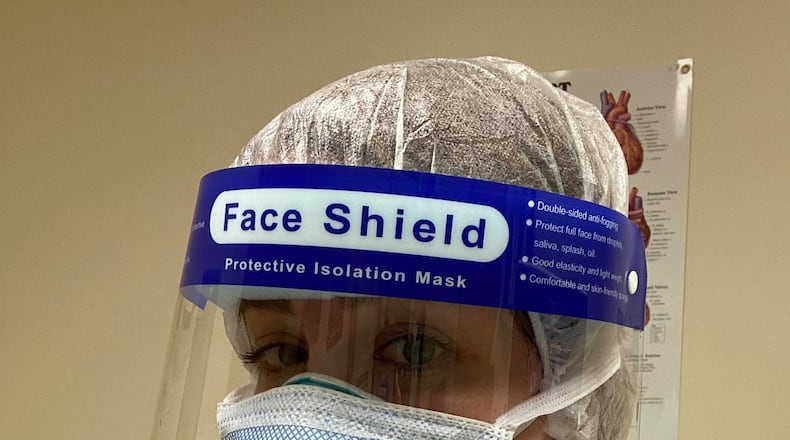In those moments alone, it is estimated that 15 more American souls were lost to this devastating disease.
With more than 4,000 deaths now recorded daily, two people died of the virus each minute in the first weeks of the 2021, according to Forbes.com.
Thanks to the immeasurably hard work of scientists, epidemiologists and infectious disease specialists, we health care professionals have an invaluable tool in the new vaccines, in addition to our precious personal protective equipment.
This is one more tool that can protect me, my family, my patients and my community to prevent the suffering that over 375,000 Americans have experienced in the past 10 months.
As a cardiac sonographer, my job is to obtain ultrasound images of the heart that aid in my patients’ diagnosis and treatment.
COVID-19 can cause heart failure, blood clots, arrhythmias, inflammation of the heart muscle and fluid around the heart. I examine blood flow and pressures, anatomy, how well the heart is pumping and how its function affects the rest of the body.
When introducing myself to a COVID patient, I’ve tried to lighten the mood by joking about wearing a Darth Vader mask and a white bunny suit, all while taking a Superman stance with my hands on my hips. But I’ve also scanned intubated patients with photos of their family adorning their ICU room walls, often worried I won’t see them again as I carefully remove my protective equipment.
That’s the thing about working at Wright-Patterson Medical Center, in my eight years of civil service with the Air Force, these servicemembers, their dependents and veterans have become an extended family to me. It’s only natural that I take this fight personally.
Imaging professionals are an integral part of battling this pandemic.
Ultrasound and radiology technologists often spend up to an hour performing exams less than a foot away from our patients. This is why it was important to me to get vaccinated. The process was completely voluntary, and informational briefings have taken place for those who would like to learn more.
I completed a series of screening questions and was encouraged to register at vsafe.cdc.gov to report any side effects I might experience after vaccination. It also sends a reminder text when the second dose is due. As I expected, I only had mild arm soreness at the injection site that didn’t last more than a day.
What will endure, however, are the conversations I’ve had with my patients and the looks on their faces. I often wonder how we will reflect on all of this. Did I do everything I could — social distancing, wearing my mask, washing my hands — to look out for my fellow man?
With this vaccination, I am hopeful.
I’m determined.
Katie Beach is a registered diagnostic cardiac sonographer at Wright-Patterson Medical Center. She is a 2011 alumnae of Kettering College and a lifelong Clark County resident. Guest columns are submitted or requested fact-based opinion pieces typically of 300 to 450 words.
About the Author

